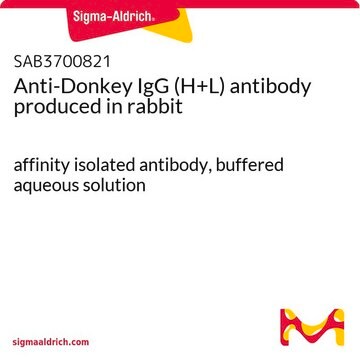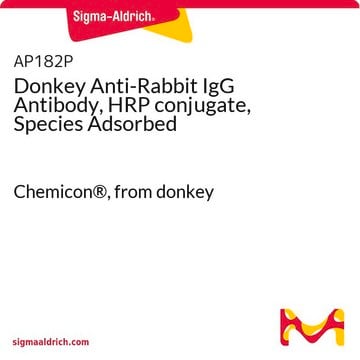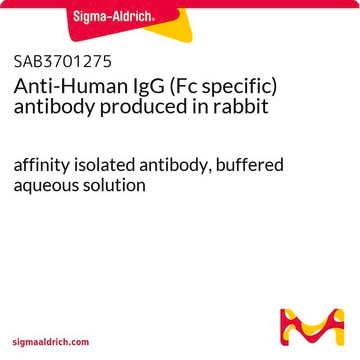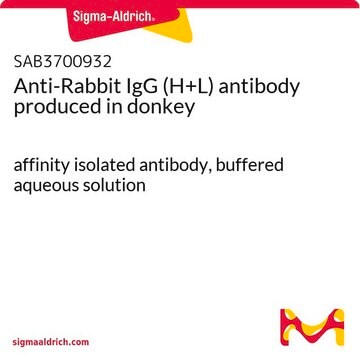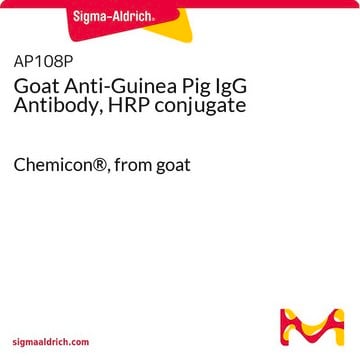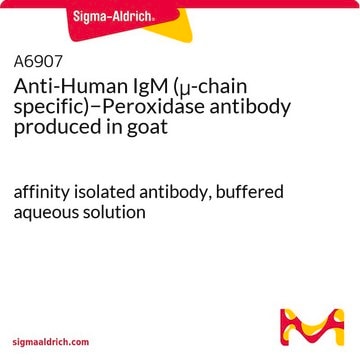SAB3700861
Anti-Rabbit IgG (Fc specific) antibody produced in donkey
affinity isolated antibody, buffered aqueous solution
About This Item
Produits recommandés
Source biologique
donkey
Niveau de qualité
Conjugué
unconjugated
Forme d'anticorps
affinity isolated antibody
Type de produit anticorps
secondary antibodies
Clone
polyclonal
Forme
buffered aqueous solution
Espèces réactives
rabbit
Concentration
2.04 mg/mL
Technique(s)
immunohistochemistry: suitable
indirect ELISA: suitable
western blot: suitable
Conditions d'expédition
wet ice
Température de stockage
2-8°C
Modification post-traductionnelle de la cible
unmodified
Description générale
Spécificité
Immunogène
Propriétés physiques
Forme physique
Clause de non-responsabilité
Vous ne trouvez pas le bon produit ?
Essayez notre Outil de sélection de produits.
Code de la classe de stockage
10 - Combustible liquids
Point d'éclair (°F)
Not applicable
Point d'éclair (°C)
Not applicable
Certificats d'analyse (COA)
Recherchez un Certificats d'analyse (COA) en saisissant le numéro de lot du produit. Les numéros de lot figurent sur l'étiquette du produit après les mots "Lot" ou "Batch".
Déjà en possession de ce produit ?
Retrouvez la documentation relative aux produits que vous avez récemment achetés dans la Bibliothèque de documents.
Notre équipe de scientifiques dispose d'une expérience dans tous les secteurs de la recherche, notamment en sciences de la vie, science des matériaux, synthèse chimique, chromatographie, analyse et dans de nombreux autres domaines..
Contacter notre Service technique

